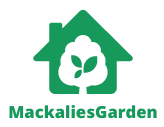As a landscaping expert, I understand that a well-designed and efficient sprinkler system is crucial for maintaining a one-acre garden or farm’s health, beauty, and productivity. Below, I will provide a detailed breakdown of the cost of a sprinkler system for this purpose, considering various factors such as land topography, sprinkler type, and additional charges.
Types of Sprinkler Systems
There are 3 main types of sprinkler systems, each with their pros and cons:
- Traditional Spray Systems: These systems use spray heads to evenly distribute water across your property. They are ideal for small gardens or landscapes with many plants nearby. However, there may be more efficient options for more extensive properties and may waste water due to evaporation or runoff.
- Drip Irrigation Systems: It consists of long, flexible tubes with drip emitters distributed along their length; these systems are designed to deliver water directly to plant roots, minimizing water waste. They are excellent for extensive gardens or farms with precisely planted rows but may not be suitable for landscapes with plants scattered at irregular intervals.
- Rotor Systems: These systems use rotating sprinkler heads to cover a larger area with water, making them ideal for extensive properties. They tend to be more efficient than traditional spray systems but can be more expensive due to the additional components required.
What is the Cost of Sprinkler System?
Based on HomeAdvisor and Angi, the cost range for a professionally installed residential sprinkler system on a ¼-acre lot typically falls between $1,679 and $3,541, with a national average of $2,540. The cost of a sprinkler system can vary depending on factors such as yard size, material quality, local labor rates, and the type of sprinkler system, including any additional features.
How Much is the Cost of Sprinkler System for 1 Acre?
The tables below provide an estimate calculation for sprinkler systems on different land sizes.
| Lawn Size by Acre | Average Sprinkler System Cost |
|---|---|
| ⅛ acre | $1,090 to $1,635 |
| ⅙ acre | $1,450 to $2,180 |
| ⅕ acre | $1,750 to $2,620 |
| ¼ acre | $2,180 to $3,270 |
| ½ acre | $4,360 to $6,530 |
| ¾ acre | $6,530 to $9,800 |
| 1 acre | $8,700 to $13,100 |
Factors Impacting the Sprinkler System Design and Cost
- Size and Shape of Property: A one-acre property can vary in shape, affecting the design, layout, and number of sprinkler heads needed.
- Topography: Sloped or hilly terrain may require more specialized components, like pressure-regulating devices, to ensure even water distribution.
- Water Source: Connection to your property’s water source can impact the overall cost; you may need to extend pipes or install a pump.
- Number of Zones: The more zones a system has, the more components it requires; for instance, each zone would require its timer and valve.
- Sprinkler Type: The type of sprinkler determines the cost — rotors are usually more expensive than spray heads or drip emitters.
- Number of Sprinkler Heads: The number of sprinkler heads needed to cover your property will impact the cost.
- Additional Costs: Installation and maintenance can add to the overall cost of a sprinkler system.
- Sprinkler System Parts: Factors such as the type and quality of the parts may impact the price.
- Sprinkler System Brand: Different brands have different products and features with varying costs.
- Soil Type: The soil type affects the water retention capacity and rate of absorption, impacting the sprinkler system design and cost.
- Labor: The cost of labor man will depend on the scope of your project.
Additional Costs and Considerations
In addition to these factors, the climate and weather in your area can also impact the cost of a sprinkler system. So, make sure to take into account local water restrictions or other regulations before making a decision.
As you can see, many elements go into determining the cost of installing a sprinkler system. By considering these and researching, you can make an informed decision to benefit your garden or farm long-term.
Rough Cost Estimate for Sprinkler System Components and Labor
- Sprinkler Heads: Depending on the type and quality, they can range from $5 to $30 per head. Expect to use 20-30 heads for a one-acre property.
- Pipes: PVC pipes cost around $0.50 to $2.00 per foot, with 200-300 feet required for a one-acre property.
- Valves: It costs between $15 and $50 per valve; a one-acre system may need 5-10 valves.
- Controllers: Automatic controllers range from $100 to $300.
- Labor: Installation labor costs vary based on location and the system’s complexity, but the average rate is $40 to $60 per hour. A one-acre property installation can take 8 to 16 hours.
Estimated Total Cost
Based on the estimates above, the total cost for a sprinkler system for a one-acre property can range from $1,500 to $4,000+ (including labor).
Additional Costs to Consider
- Water Supply Connection: Extending or connecting your system to the water supply can add $200 to $500+ to the overall cost.
- Permits: Some localities may require permits for installing a sprinkler system, with permit fees ranging from $50 to $200.
Considering these factors, installing a sprinkler system for a one-acre garden or farm can range from $1,500 and $4,000+, with the average cost falling at around $2,500.
What Does it Cost to Install a Sprinkler System Yourself?
Installing a sprinkler system yourself through DIY methods offers a considerable cost advantage. The expenses are only a fraction of what you typically incur for a professional installation. For a one-acre yard, the estimated cost range for self-installation of a sprinkler system is between $2,600 and $6,000.
Supplies and Tools For DIY:
- Trenching Tool/Supplies. Trenching tools are conveniently available for rental. Utilizing these efficient tools is highly recommended, as they are valuable despite the rental expense ranging from $100 to $160 per day. In addition, the necessary supplies for laying out trenches include paint, line, and chalk, which should amount to approximately $10 to $20 in costs.
- PVC Pipe. Standard ½ -1″ PVC pipe costs roughly $0.25 per foot. Flex PVC pipe, priced at around $1.00 per foot, maybe a suitable alternative for trenches that do not follow a straight path.
- Sprinkler Heads. A diverse range of sprinkler heads is available, each with its corresponding price point. Depending on the type you select, budget anywhere from $10 to $30 per head.
- Timers. The timer will initiate and terminate your sprinkler system based on your specified schedule. A primary manual timer is priced between $35 and $55, while a digital timer typically ranges from $80 to $180. Additionally, there are smart timers accessible that can be controlled from your smartphone.
- Flex Tubing. Flex tubing is required to connect the pipes to the sprinkler heads. For a one-acre lawn, a 50-foot roll of tubing priced between $17 and $25 should suffice.
- Valves. A valve is required for each zone in your sprinkler system. Valves are priced between $12 and $30 each.
- Manifolds. Manifolds are responsible for distributing water from the primary source to individual zones. One manifold per zone is recommended, costing around $45-$60.
- Water Filter. An irrigation water filter is priced between $60 and $120.
Permits and Installation Expenses
- Electrician. Unless you possess professional expertise as an electrician, I highly advise engaging the services of a professional electrician to handle the task of running the wires from your system to the timer. This process typically requires 3-5 hours to complete. In terms of cost, it is customary for electricians to charge approximately $90-$120 per hour, depending on your geographical location.
- Plumber. In numerous areas, it is necessary to possess a plumber’s license to connect the water central from your residence to the sprinkler system. It is advisable to employ the services of a professional plumber for this task, typically costing between $250 and $500.
- Plans (if desired). If you go for plans from either Rain Bird or Toro, the cost will range from $25 to $40, based on the size and specifications of your yard.
- Permits. Depending on your location, obtaining permits for electrical and plumbing work may be necessary. It is recommended to consult with your local city or county authorities for specific requirements. Remember that permit fees typically range from $50 to $200 when preparing a preliminary cost estimate.
Frequently Asked Question
How Much Cost For 2 acre sprinkler system?
The estimated cost for a residential 2-acre lawn sprinkler system ranges from $3,400 to $7,000+, with the national average falling at around $5,000.
How Much Cost For 1/2 acre sprinkler system cost?
The estimated cost for a residential ½-acre lawn sprinkler system ranges from $2,800 to $4,360+, with the national average falling at around $3,500.
How many water zones do I need?
A watering zone is a designated area in your yard that receives water from the same valve. Additional zones are necessary due to water pressure limitations and variations in watering requirements. To determine the number of water zones in your garden, consider the following factors:
- Determine the maximum water pressure that can be utilized simultaneously.
- Assess the water flow rate of the system’s emitters.
- Verify if the flow rate of individual emitters can be adjusted.
- Take into account the length of the drip line.
Conclusion
We expect that you get the correct answer about the question sprinkler system for 1-acre lot cost. Sprinkler systems offer an efficient and effective solution for watering lawns, gardens, fields, and other outdoor spaces.
The estimated cost of installing a sprinkler system for a one-acre garden or farm ranges from $1,500 to $4,000+, with the average price falling at around $2,500.
Self-installation offers considerable savings compared to professional installation, estimated at between $2,600 and $6,000 for a one-acre lot. Factors such as terrain, material quality, size of the yard, and number of zones needed can affect the total cost of installation.

Douglas Mackalie is a Founder of Mackalies Garden. He is one of the most exciting people you’ll ever meet. He has 25 years of experience in horticulture and gardening, most of which he’s spent outdoors getting his hands dirty.
